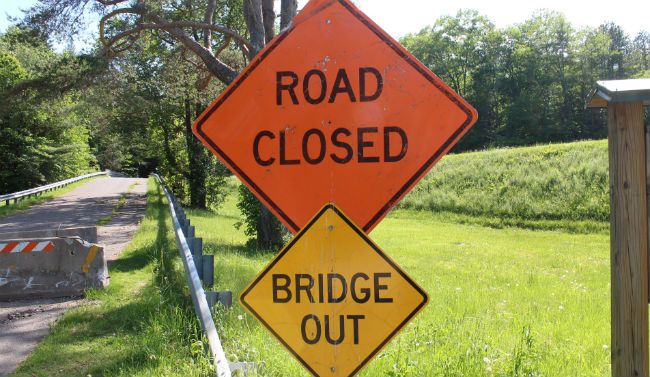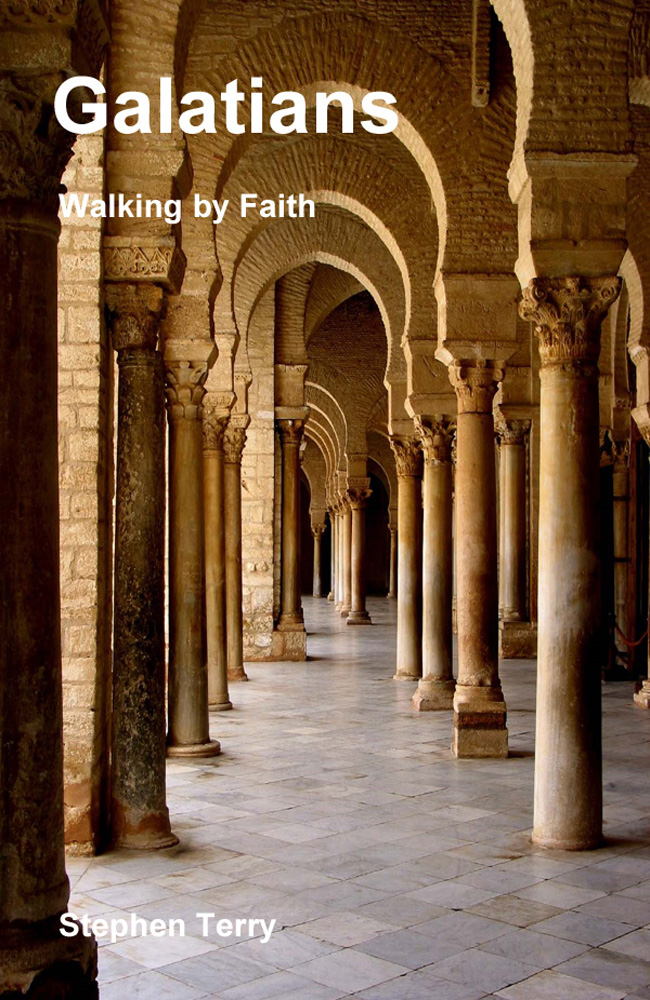Living by the Spirit
Stephen Terry
Commentary for the September 16, 2017
Sabbath School Lesson
 “But
if you are led by the Spirit, you are not under the law.” Galatians 5:18, NIV
“But
if you are led by the Spirit, you are not under the law.” Galatians 5:18, NIV
Having been returned to the right path by Evangelist
after finding no release from his burdens through legalism, Christian finally
comes to the foot of the cross where his burdens roll from his back and he
experiences freedom. This is the true
start of Christian’s pilgrimage in “Pilgrim’s Progress” by John Bunyan. Prior
to this, he was told and wanted to believe that there was something better than
the burden of guilt he had been struggling with. He went seeking it without
knowing what he was actually seeking. Evangelist told him it was there and
directed him on the way, but it was the weight of his burdens that pushed him
onward.
In the same way, the law heaps on us a weight of
condemnation that enslaves us to carry that burden of guilt. Without relief
from somewhere we will carry that burden until we die. We believe we will then
face judgment for the misdeeds that brought about our burden of guilt, but in
reality we have already judged and condemned ourselves if we do not seek a way
out of our untenable position.
A war rages in our being. (See Romans 7:15-20) The Bible
identifies the combatants as our two natures, one carnal or fleshly and the
other spiritual. Paul tells us that the fleshly nature is associated with
“…sexual immorality, impurity and debauchery; idolatry and witchcraft; hatred,
discord, jealousy, fits of rage, selfish ambition, dissensions, factions and
envy; drunkenness, orgies, and the like…” Galatians 5:19-21, NIV The law which is external to our
inward desires, condemns these activities and hence our burden of guilt. Prior
to our knowledge of any such law, we may see these activities as an enjoyable
“to do” list. But inherent in these things is a love of self before love of
others. As others find themselves unloved through our activities, they resist.
In that resistance may lie appeals to secular statutes
to enforce more socially neutral behavior.
Through these encounters with secular law, we begin to get
a glimmer of the role of law in instructing us regarding incorrect behavior.
(See Galatians 3:24) As our awareness of the law grows, our sense of
condemnation for our fleshly desires grows. We begin to understand the effect
they have had on our relationships, and we feel guilt and shame for what we
have done for self-interest. This burden fastens itself securely upon us and we
begin to feel its weight. Every time we return to those activities that appeal
to our flesh, we feel the burden grow.
At this point we are faced with two options. Like a
slave, we may resign ourselves to our chains and simply accept our situation as
all we can expect in life. We can find momentary pleasures in continuing to
pursue selfishness, but those pleasures are fleeting. Like an addict, we find
that what was enough to distract us from our guilt in the past is no longer
enough today. We get caught in a spiral of ever increasing despair as the
burden of guilt increases and momentary pleasure becomes harder to find. The
Bible tells us that this downward spiral ends in death. (See Romans 6:23)
Unfortunately for some who follow this path, the burdens become so immense and there
is so much of death already in their lives that when death actually comes, they
see it as a merciful deliverance sent from God.
God never intended things to be like that. The law was
intended to be a warning on life’s pathway. Like a “Bridge is Out” sign, it was intended to warn us to take a different
path. But for some, the moment of truth when they encounter the sign is a
challenge. The glittering neon signs on the other side of the river are so
enticing they will try to cross the water even when the bridge is out, no
matter the price. Even then, God does not abandon these to their fate. Swimming
the current beside them, He urges them to turn back, and He will bring them to
safety. Frightened by the churning water, some listen and trust Him to bring
them to safety. But there is also one calling from the far shore telling them
that they must come on as it is too late to turn back. He tells them that they
are closer to the far shore so most of the dangers are behind them.
Those who listen to this siren song will find that the
further they go, the more difficult the way back looks to them, and the harder
it becomes to choose to return. While God never abandons His children, their
continued path of self-reliance makes it hard to rely on someone else, even
God. Once they cross the river they may stay away from the water and convince
themselves that they are respecting the “Bridge is Out” sign, but in that case,
the sign has become a barrier to their ever returning from their selfish path
It only becomes a continual reminder of their erroneous choice with no power to
lead them to a better way.
In spite of the bitter experience of some, others may
heed the warning and look for that better pathway, and this is what the law was
meant to do, to direct us to another path. Once on that path, the sign that
brought them there becomes irrelevant. Like Judy Garland as Dorothy in “The
Wizard of Oz,” once she was on the Yellow Brick Road, it became unimportant
that she had begun in Munchkin land. The road became all about the destination.
Were there setbacks? Yes. Did she have doubts on the way? Yes. But she never
returned to Munchkin land. It wasn’t necessary to reach her destination.
In the same way, the law functions as a “schoolmaster”
to bring us to the right path. When we enter on that path, we do so through
repentance. In the Greek, the word repentance (metanoia) literally means to
take a new path. Once on the new path, Christian in “Pilgrim’s Progress” and
Dorothy in “The Wizard of Oz” did not need to keep returning to the beginning
to remember what had brought them there. In the same way, we do not need to
keep going back to read the “Bridge is Out” sign. Every time we do, we open
ourselves up to the wrong choice of crossing the river. Once we have passed
that temptation, why would we want to go back? (See Romans 7:10-11)
The law as a schoolmaster brings us to Christ where repentance
sets us on a different path. At that point, through the presence of the Holy
Spirit, we become endowed with a “heavenly GPS” to keep us on the right path.
The Spirit speaks to us in unmistakable utterances to guide our way. Since it
is finite and God is infinite, the law can never be more than an incomplete
expression of God. When infinity comes to dwell in us through the Holy Spirit,
the programming of our GPS becomes so much more complete than the simple “road
map” of the law. It contains everything we need for the trip.
Because the focus of the law is condemnation, it is
expressed through negative statements of what not to do. It is like a road map
that shows only the roads that should not be taken. On such a map, even
choosing the best route would still lead us astray. That is why the law can
never save us. But once the Holy Spirit has come into our hearts, our GPS has
all the co-ordinates for the best pathways to reach heaven. The law becomes
meaningless because we are traveling positive pathways under the Spirit’s
guidance. It cannot condemn such behavior, and condemnation is its only
purpose. (See Romans 8:1)
Like Christian in “Pilgrim’s Progress,” we may not
understand what comes after the repentance and receipt of the Holy Spirit (See
Acts 2:38), but that is no excuse to cling to the schoolmaster, afraid to
wholly abandon ourselves to the Son. Instead we should trust the teaching of
the schoolmaster that we are condemned and facing only death. Then we should
accept the free gift of life (See Romans 6:23) God offers through Jesus. We can
never fulfill the law as long as we remain under the schoolmaster.
Paradoxically, if we leave the schoolmaster behind and follow the new pathway
of repentance led by the Spirit dwelling within, we end up both legally
justified through Christ and spiritually complete through His indwelling
presence. This is life. On this pathway are “…love, joy, peace, forbearance,
kindness, goodness, faithfulness, gentleness and self-control. Against such
things there is no law.” Galatians 5:22-23, NIV The law is powerless to guide the
Spirit-filled Christian, instead the fruit blossoming in the heart becomes the
well spring of every activity. “…this is
eternal life: that they know you, the only true God, and Jesus Christ, whom you
have sent.” John 17:3, NIV
